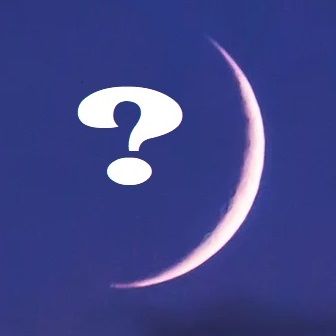Many Messianic and Hebrew Roots adherents frequently use the term Rosh Chodesh. It may surprise you, but this term only appears three times in the entire Hebrew Bible (the Christian Old Testament). Here are those three times as they appear in the English Standard Version of the Bible:
This month shall be for you the beginning of months. It shall be the first month of the year for you.
Exodus 12:2 ESV
On the day of your gladness also, and at your appointed feasts and at the beginnings of your months, you shall blow the trumpets over your burnt offerings and over the sacrifices of your peace offerings. They shall be a reminder of you before your God: I am the LORD your God.
Numbers 10:10 ESV
At the beginnings of your months, you shall offer a burnt offering to the LORD: two bulls from the herd, one ram, seven male lambs a year old without blemish;
Numbers 28:11 ESV
As you can see, whenever these words appear in the Hebrew text they are translated as “the beginning(s) of (your) months.” The Hebrew word rosh means the head, or in context, the beginning, of something. The word translated “month(s)” is chodesh (singluar) or chadashim (plural), or chadashechem “your months” (plural, second person possessive). In all three instances above, the word following some form of the word rosh is plural. The words “rosh chodesh” are not found in the Hebrew Bible.
Chodesh
Chodesh (Strongs #H2320) means month. It occurs approximately 283 times in the Hebrew Bible (Masoretic text, other sources may vary). About 94-95% of the time (again, English translations vary), it is translated as month. So why is it sometimes translated as “new moon?”
Here is a description of the word from the Theological Wordbook of the Old Testament. Notice that, although this word has no etymological relationship to the Hebrew word for moon, yareach (#H3394), it is still said here to “properly” mean “new moon.” We ask again, why? Because, it is assumed, the month begins with the new moon.
hodesh. Month, monthly, new moon. Although this word properly means “new moon,” it is commonly used as an equivalent to our word “month” because the month began when the thin crescent of the new moon was first visible at sunset. It was used along with the more rare yerab, from yareah meaning “moon.” (Note especially 1Ki_6:1, 1Ki_6:37, 1Ki_6:38; 1Ki_8:2 where the terms are used interchangeably. Although yerah is never used as a numbered month, its use as a named month is attested in Ugaritic as well as the OT. See UT 19: no. 1151.)
Theological Wordbook of the Old Testament, reference 0613b
Consider, thought, that on the solar calendar used in Ancient Israel the months did not begin with the new moon. Enoch chapters 72 through 82 and Jubilees chapter 6 provide details of the calendar not tied to the moon. A lunar calendar was adopted by Israel during and following the Babylonian captivity, and was fully incorporated under the Greeks, setting aside the original calendar. Thus, the term chodesh, which is still most often translated as month, evolved to mean “new moon” only when referencing the beginning of the month.
Unfortunately, reputable Messianic-oriented Bible translations like the Complete Jewish Bible and the New Jerusalem Version insert the Hebrew phrase rosh-hodesh or rosh chodesh in dozens of places even though it is not in the Hebrew text. The Tree of Life Version does not, but it still sometimes uses the term “new moon.”
Word Meanings Change Over Time
For a modern example of this same kind of change in meaning for words, think about the word “car.” Webster’s Dictionary of American English (1828) defines “car” as “a small vehicle moved on wheels, usually drawn by one horse.” The automobile, which we commonly call a car, did not exist at the time. My car is neither small nor drawn by one horse.
Likewise, consider “gay,” an adjective meaning lighthearted and carefree, once used to describe the decade of the 1890s as “the gay 90s.” Today that word is almost exclusively used to describe a homosexual male – though I refuse to use the word in that context.
Much could be speculated about why both the terms chodesh for the numbered month and yarech for the named month are used in these passages in the book of Kings. Clearly from these passages they are not interchangeable. Is it possible that the writer was adding the yarech (moon or lunation) term simply because the book was written at a later period (many Jewish scholars say it may have been by Jeremiah) and a more contemporary reference was included? Consider how a modern English translation says in Haggai 1:15, “This was on September 21 of the second year of King Darius’s reign” (Haggai 1:15 New Living Translation). This gives the reader a contemporary point of reference even though September 21 was not on any calendar at the time the event took place.
Chodesh and Rosh Chodesh
Chodesh means “month.” It only came to mean “new moon” by implication under the false notion that the Biblical month is a lunar cycle based on phases of the moon.
Rosh Chodesh means the beginning (head) of the month or the beginning (head) of a set of months, and more likely is reserved for the beginning of the months that comprise a season – Spring, Summer, Fall, or Winter.

